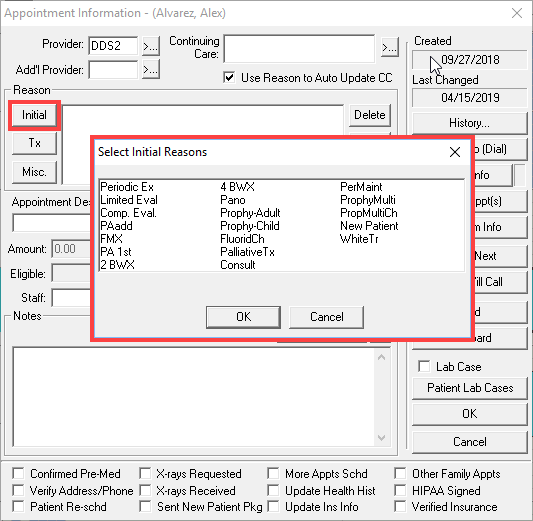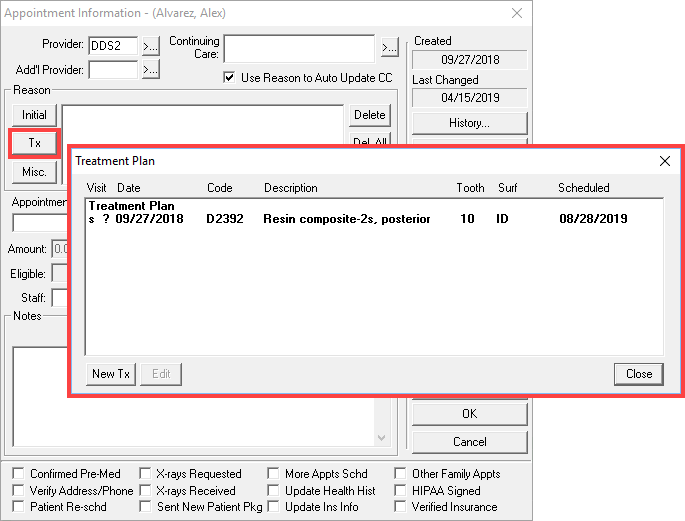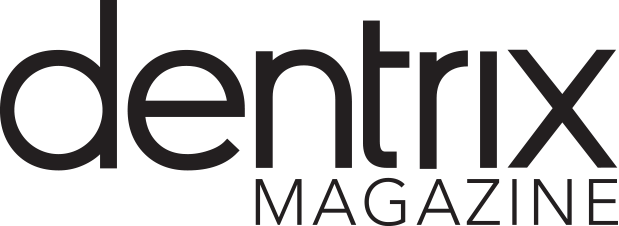You have all the information you need to schedule appointments for patients, if you know where to look.
When scheduling an appointment in Dentrix you can select procedures from the Initial Reasons list or from the Treatment Plan Reasons list—all from within the Appointment Information dialog box. Here’s how I use both of these options and why.
The Initial Reasons List
I use the Initial Reasons list to schedule routine procedures. For example, exams, X-rays, adult and child cleanings can all be set up as options to choose from the Initial Reasons list.

This is a fast way to schedule routine procedures. This can also be a great way to schedule appointments for team members who aren’t familiar with individual procedure codes. The Initial Reasons list can be customized with the routine procedures you often do in your office in the Dentrix Office Manager.
Another great way to save time when scheduling using the Initial Reasons list is to set up multi-codes and include them in the Initial list. For example, you could create a multi-code that contains all the procedures for a child prophy, periodic exam, x-rays and fluoride. By adding the multi-code to the Initial Reasons list, you can now easily schedule all those procedures in just a couple of clicks. Multi-codes can be created and edited in the Dentrix Office Manager.
The Treatment Plan (TX) Reasons List
The other way to schedule a patient appointment is using the TX button, which contains a list of all of a patient’s treatment-planned procedures. This includes treatment-planned procedures that are tooth- or surface-specific, for example, a filling or a crown.

These procedures can be treatment planned in the Patient Chart and then scheduled using the TX button in the Appointment Information window.
Note: I don’t recommend treatment planning routine procedures (such as cleanings or X-rays) because if a patient cancels their routine procedure appointment, those procedures will be considered an unscheduled treatment plan and will affect your unscheduled treatment plan reports and case acceptance reports.
Using these appointment scheduling options in Dentrix can help save time and ensure your Unscheduled Treatment Plan Reports are accurate.
Learn More
For additional information, read the following :

By Charlotte Skaggs
Certified Dentrix Trainer and The Dentrix Office Manager columnist
Charlotte Skaggs is the founder of Vector Dental Consulting LLC, a practice management firm focused on taking offices to the next level. Charlotte co-owned and managed a successful dental practice with her husband for 17 years. She has a unique approach to consulting based on the perspective of a practice owner. Charlotte has been using Dentrix for over 20 years and is a certified Dentrix trainer. Contact Charlotte at [email protected].





